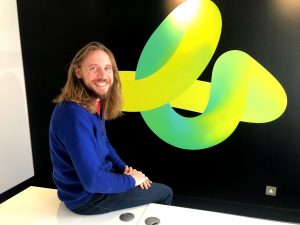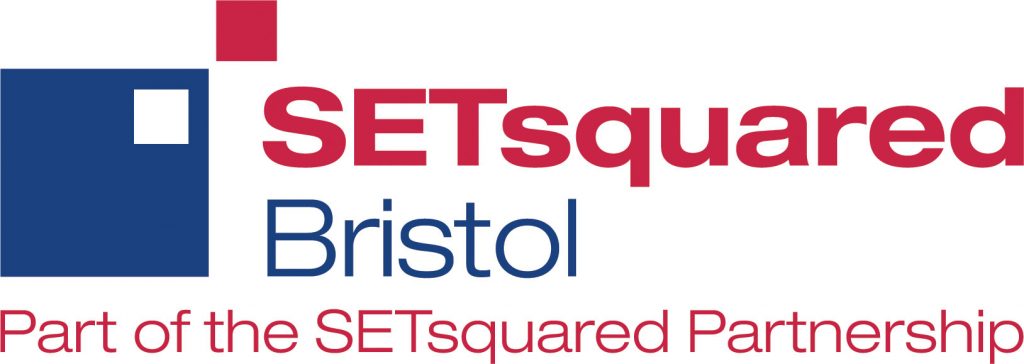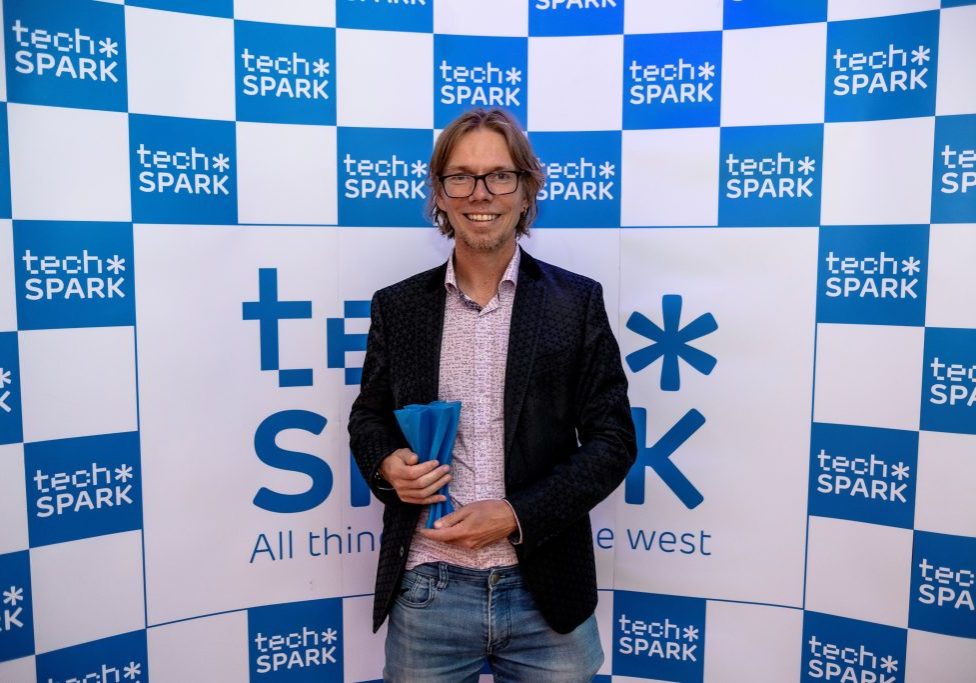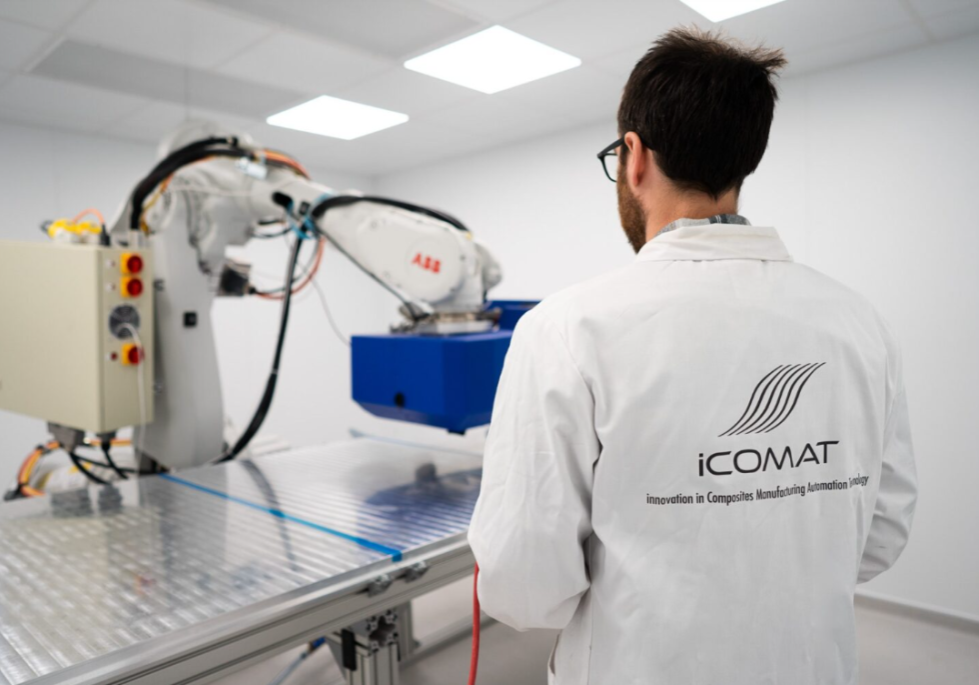SETsquared Bristol Case Study – Helastel: Optimising for growth and innovation
Posted by
SETsquared Bristol
To help our aspiring entrepreneurs and future SETsquared Bristol members, we showcase a number of case studies demonstrating the breadth of tech at SETsquared Bristol and what it takes to achieve success.
We had a chat with Helastel Founder and CEO, Iouri Prokhorov…
 Helastel Key Facts
Helastel Key Facts
- Start date: 4 June 2004
- Market sector: Software consulting
- Location: Bristol
- Number of employees: 60
- Company status: growing/scaling
What does Helastel do?
We enable organisations to grow and innovate by helping them optimise their business processes using software. There are two jobs that we do: one is to help organisations scale by making them more efficient, and the other is to help them develop products that they can take to market and monetise. We’re an end to end house for managing solutions, from business consulting, architecture design and implementation, to support and hosting.
Tell me about your background as an entrepreneur.
Helastel is the fourth business I’ve founded. When I was age 16, I founded one of the first broadband providers in Moscow. Helastel started as different business limbs within consulting, an ecommerce platform, and pre-procurement consulting, all of which are now sold. At the point of joining SETsquared I’d done at least a decade of business, but even so, I still knew nothing about business! Becoming a professional CEO takes a very long time. As CEO, you have such a diversity of tasks, you don’t necessarily get really good at any one thing.
 What’s the ethos underpinning your business?
What’s the ethos underpinning your business?
We believe that organisations can be limitless if software is not a limiting factor. Our vision is to enable every organisation to have access to software which is near enough instant and can realise value in zero time. Software development costs a lot of money and takes a long time, so our job is to make processes efficient and time effective. Technology is a big part of innovation, and often, technology is the limiting factor.
How did you enter SETsquared?
I found out about SETsquared through mentoring engineering students at the University of Bristol. When I joined SETsquared three years ago, we had a team of about ten to twelve people and operating and scaling the business was pretty overwhelming. It was difficult to control the organisation and I was central to doing everything. The reason I joined SETsquared was as a last attempt to make the company work. SETsquared helped us to define the strategy, part of which was to go from consulting to product. We had the beginnings of the product, but we didn’t have the roadmap and route to market.
How else has SETsquared helped you?
In my experience, SETsquared puts you through a structured system of thinking. In the Investor Readiness Programme, the Entrepreneurs-in-Residence run a course which has very specific thinking about business. They teach a realistic, down-to-earth model and help you to apply it to your business to work through a myriad of specific problems, for example, the product roadmap, creating a board, making sure business is scalable and formulising your offering.
We were allocated Greville Commins as a mentor, who put us on the mock board series as well as business review panels. The mock boards were very useful, structured and consistent. They helped us to form systems in the organisation in order to get the data we needed by systemising our consulting template. It was then evident that we needed to form a board to move forward. The board forced us to produce better information and to make better decisions. It completely revolutionised the DNA of our organisation. You have to be quite religious about being a SETsquared member, I don’t think there’s a lot of value in joining unless you really go for it. I joined because I was desperate and SETsquared kept me going.
 What clients do you work with?
What clients do you work with?
We mainly work with large corporates and some SMEs, like consulting for RNLI, as well as smaller projects in the healthcare and corporate sectors. We were the first company in the world to write software as a drug for type 2 diabetes on prescription in the UK, for an organisation called Mapmyhealth. We tend to work with organisations who have 100 or more staff. Large scale organisations are where you can see huge benefit in software that works for the business and not the other way around.
Helastel is one of the most successful SSQ companies to not take investment. Can you tell me about your growth journey through bootstrapping?
Our business model was very simple. At the beginning, my number one rule was to implement a plan to make the numbers happen. We became profitable quickly, we grew, and put the profits back into marketing. That got us to the stage of becoming SETsquared members, and having some financial horsepower meant we could take riskier decisions.
Later it became more complex because the organisation grew with other needs. There are factor levels of scaling at different stages, for example, the base cost that you need to operate an organisation from 10 to 20 people, then 50 to 250, and the next level after that. There’s a very significant cost jump in changing gear and putting basic operational overhead systems in place, like HR, finance, retention or culture. Systems are expensive, so there is a timing issue about introducing them. Getting through that step has been quite challenging, but it’s essential, because if you try and grow without it, you will break the organisation. And we certainly came close to breaking point many times.
What are the next steps for the business?
We’re going through an interesting conversion to product, that we’re already selling. In the next six months we need to recruit 25 more people, in order to make the consulting organisation scale and grow, as well as selling the product and maintaining the mix in such a way that the organisation’s value increases. Our target is to grow 40% year on year with the same model.
 What advice can you give to other aspiring founders?
What advice can you give to other aspiring founders?
In the tech sector you’re basically a formula one driver. Your job is to not crash the vehicle, but to drive it to its absolute maximum capability, at very high-speed, with some very serious risks. But don’t take crazy risks. You need a consistent decision-making process, which manages the risk in such a way that doesn’t cost you time. You need to be safe within your constraints, but also to have taken enough risks for them to have paid off enough to win the race. When things go wrong, that’s just a normal part of the race. If you go in with that mindset it will put a lot of things into context. Being able to know which stress to ignore and which stress to focus on is an important skill.
To those who are thinking of joining SETsquared, I’d say, “can you be open minded enough to accept you that you don’t know what you don’t know? And can you really commit and drive it?” If your two answers are yes, then I think what you’ll end up doing will either be remarkable, or you’ll fail. But in both scenarios, I think you’d prefer to find out sooner rather than later, which is where SETsquared comes in. If Helastel can do it with such a simple business model, then so can everyone else!
Discover more of the companies SETsquared incubate here and sign up to the monthly SETsquared newsletter to keep up with news, events, opportunities and more.
Recent News, Blogs and Stories



